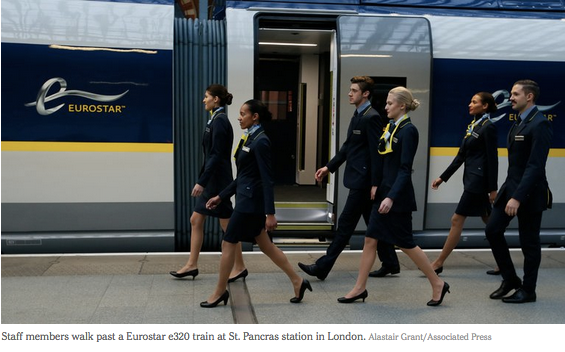Curator’s Note: This article is included under Economics because it illustrates one of the dangers of privatizing public infrastructure. Once public infrastructure is sold, or privatized, it can be sold again and again. Privatizing American infrastructure opens the US up to being owned by foreign countries, foreign nationals and other, perhaps, unscrupulous owners.
LONDON — The privatization of public services “was one of the central means of reversing the corrosive and corrupting effects of socialism,” Margaret Thatcher wrote in her memoirs. “Just as nationalisation was at the heart of the collectivist programme by which Labour governments sought to remodel British society, so privatisation is at the centre of any programme of reclaiming territory for freedom.”
Those sentiments fueled a sell-off that put nearly every state-owned service or property in Britain on the auction block in the final decade of the 20th century, eventually including the country’s expansive public transportation infrastructure. Enshrined by parliamentary acts under Mrs. Thatcher and implemented by her two immediate successors, John Major, a Conservative, and Tony Blair of New Labour, the gospel of privatization was embraced by leaders around the world, notably including Mrs. Thatcher’s closest overseas ally, President Ronald Reagan.
In the realm of transportation, that gospel was soon betrayed by its own chief disciples. Put simply, there were few private-sector buyers with the expertise and deep pockets necessary to maintain control of a transit system that serves approximately seven billion passengers per year. With minimal transparency, operational ownership of the network of train and bus lines that crisscross the 607-square-mile sprawl of Greater London, linking it to the far-flung corners of Britain, was peddled in bits and pieces by the British state or acquired in corporate takeovers.
But the new bosses were not private, business-savvy British firms. By 2000, the masters of British public transit — thanks to a scheme that was intended to replace state waste and sloth with soundly capitalist business principles — were foreign governments, most of them members of the European Union.




